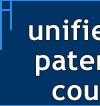Our public lectures series on topical issues of intellectual property law and policy is open to anyone to attend, but registration is required.
Due to the UK-wide university strikes taking place during February-March 2023, please kindly note that the dates/timing of the 2023 public lectures are slightly different to previous years.
Attendance is free, but, registration is required. If you wish to attend, please e-mail Prof. Dinusha Mendis at dmendis@bournemouth.ac.uk
Maurizio Borghi (University of Turin): Intellectual Property and the Commons: Rethinking the Boundaries
Thursday 2 February 2023, 18.00 (BST), Room EB306
Intellectual property (IP) as we know it today is the result of a century-long process that coincided with the rise and expansion of information capitalism and knowledge-based market economy in the Western world. While creating the conditions for extraction of value and capital accumulation in an increasing range of domains, at the same time IP law has defined the boundaries of capital accumulation by determining what can be called private property and what should remain in the commons. In the last decades, opponents of market expansionism have championed the role of classic IP doctrines and principles that enhance the public domain by allowing free, unlicensed use of protected subject matter. These include: fair use and exceptions in copyright law, exclusions and compulsory licensing in patent law, descriptive use and exhaustion in trade mark law, as well as limitations of liability and “safe harbours”. The effect of these norms depends on the assumption that the prerogatives of the right holders and those of the public domain can be defined ex ante by law. However, the latest version of techno-capitalism presents a deep challenge to this assumption, in that huge amount of value can be extracted from IP subject matter without formally owning any IP right. Indeed, big-tech corporations rely less on large IP portfolios and more on the opposite of IP, namely fair use, exemptions and safe harbours, coupled with power of control over the means of extraction of surplus-value. Within this new framework, traditional IP doctrines that enhance the public domain may not only be ineffective, but can even have the opposite effect of enabling further enclosure of the commons.
The Public lecture discusses the challenge posed to IP doctrine and attempts to set the basis for a renewed understanding of the boundaries between property and the commons.
Maurizio Borghi is Professor of Commercial Law at the University of Turin, Law School, and Co-Director of the Nexa Centre for Internet and Society at the Polytechnic of Turin.
Mr José Graça Aranha: International and Multilateral IP Systems and UNSDGs
Monday 13 February 2023, 10.00 (BST), Room PG15
Focusing on the various bilateral and multilateral Intellectual property (IP) treaties, this talk will provide insights and perspectives on their implementation as well as their impact in developed and developing countries. Moreover, and in particular, the talk will focus on UN Sustainable Development Goals (UNSDGs) and what they mean for IP laws in meeting these goals by 2030. The talk will focus on some of the aims such as boosting innovation, technology exchange and creativity in addressing some of the most pressing needs of developing countries. In this context, closing the COVID-19 global vaccination gap, boosting women and youth entrepreneurship as well as tackling the existential threat of climate change are some of the ways in which IP organisations such as the World Intellectual Property Organisation (WIPO) will aim to achieve the UNSDGs.
The Public lecture will provide an insight in to the impact of IP laws on UNSDGs and will discuss the challenges and opportunities in looking ahead to 2030.
Valentina Moscon (Max Planck Institute): Creators’ Remuneration in Online Marketplaces
Friday 31 March 2023, 17.30 (BST), Room BG110
In the cultural industry, the imbalance between the turnover of online streaming of works and the revenues of authors and performers (creators) is a well-known issue. One important factor behind this phenomenon is the weaker position of creators when licensing or transferring their rights for exploitation in return for remuneration. Furthermore, as copyright contracts are usually of long duration, the inadequacy of negotiated terms can be exacerbated over time by changes in the works’ reputation and value.
Two different but not alternative legal approaches address the problem. The first consists of introducing mandatory contractual provisions strengthening the position of creators such as transparency obligations, revocation rights or other similar limitations, as well as general principles aimed at securing fair remuneration in exploitation contracts of creators. This line of intervention has been applied for instance in Germany in 2002. The second approach consists of intervening in the market structure by releasing creators from their gatekeepers in the market (that is, publishers and producers) as far as remuneration is concerned. This is achieved by providing creators with a direct and unwaivable remuneration right vis-à-vis the economic players who make content available to end users. The Swiss legislature, for instance, moved in this direction in 2019 for the online exploitation of audiovisual works, also imposing that creators’ remuneration rights be mandatorily negotiated and enforced by CMOs.
This lecture will examine the two models also looking at the implementation process of Article 18 of Directive (EU) 2019/790 on Copyright in the Digital Single Market, which leaves Member States free to adopt both approaches, thus regrettably leading to fragmentation at European level
_________________________________________________________





